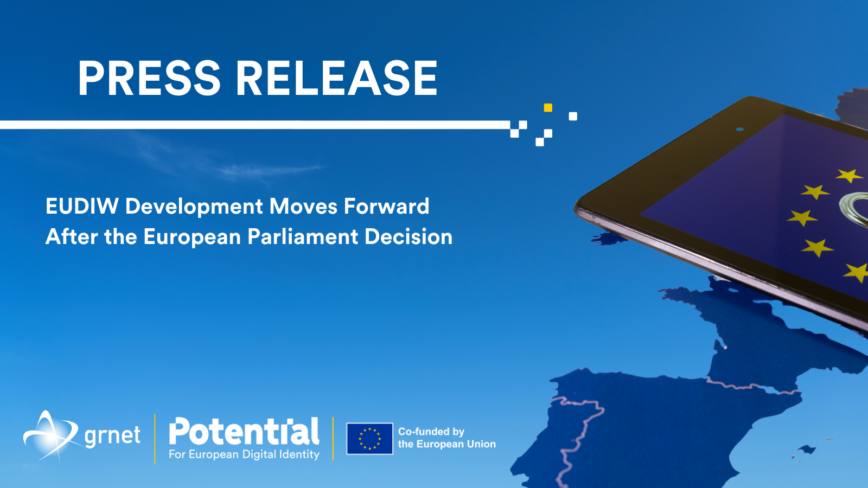The European Parliament has voted in favor of establishing a framework for EU Digital Identity, marking a significant milestone in the EU’s journey towards a more secure and accessible digital landscape. This facilitates the POTENTIAL consortium to expedite their large-scale pilot project aimed at piloting the European Digital Identity Wallet (EUDIW). All Member States, including 19 countries and Ukraine participating in the project, are committed to releasing their EU Wallets within 24 months after the implementing acts in force, as mandated by Regulation.
“The newly adopted legal framework, and the highly anticipated release of a new version of the Architecture and Reference Framework (ARF), will enable us to accelerate the technical development of the EU Digital Identity Wallet (EUDIW) ecosystem and carry out trials across participating countries. We aim to ensure an EU-wide recognized, highly secure, user-centric, and interoperable Digital Identity Wallet ecosystem, empowering EU citizens to effortlessly access both public and private services. POTENTIAL is looking forward to successfully piloting EUDIW in different scenarios nationally and cross-border, providing their expertise and propositions to the Commission”, – says Florent Tournois, the Coordinator of the POTENTIAL project.
Meanwhile, the Architecture and Reference Framework (ARF) establishes common standards and technical specifications for Member States to create or adapt their Wallets.
The Wallet serves as an application on mobile devices, enabling users to seamlessly store and manage their data while retaining complete control over their privacy. Emphasizing transparency, innovation, and security, the national wallets should be open-source, aiming to foster trust and accountability. It will be free of charge for natural persons and entirely voluntary for every European citizen.
The EU Wallet prototype is now set to be implemented across participating countries, each with varying levels of Wallet status.
For Greece, the Ministry of Digital Governance is leading the Project together with GRNET, the National Infrastructures for Research and Technology, operating under the Ministry’s auspices. Professor Panos Louridas, Director of Research and Development at GRNET, states: “This is the moment we have been waiting for. After meticulous planning, we can now start the technical work to deliver the EUDI Wallet in Greece, alongside the other member states. We will build on the enthusiastic adoption of the Greek digital wallet which was a leader of its kind in EU, and plan to deliver advanced technological solutions that will enable advanced citizen services throughout Europe”.
Co-led by France and Germany, POTENTIAL is the biggest of four large-scale pilots selected by the Commission to advance Digital Identity across Europe. With the participation of more than 140 institutions from the public and private sectors across Europe, the project aims to ensure all national Wallet implementations are interoperable with each other and to test the defined use cases, both online and offline. POTENTIAL focuses on six use cases: eGov Services, Bank Account Opening, SIM Card Registration, Mobile Driving Licence, Qualified eSignature, and ePrescription services.



